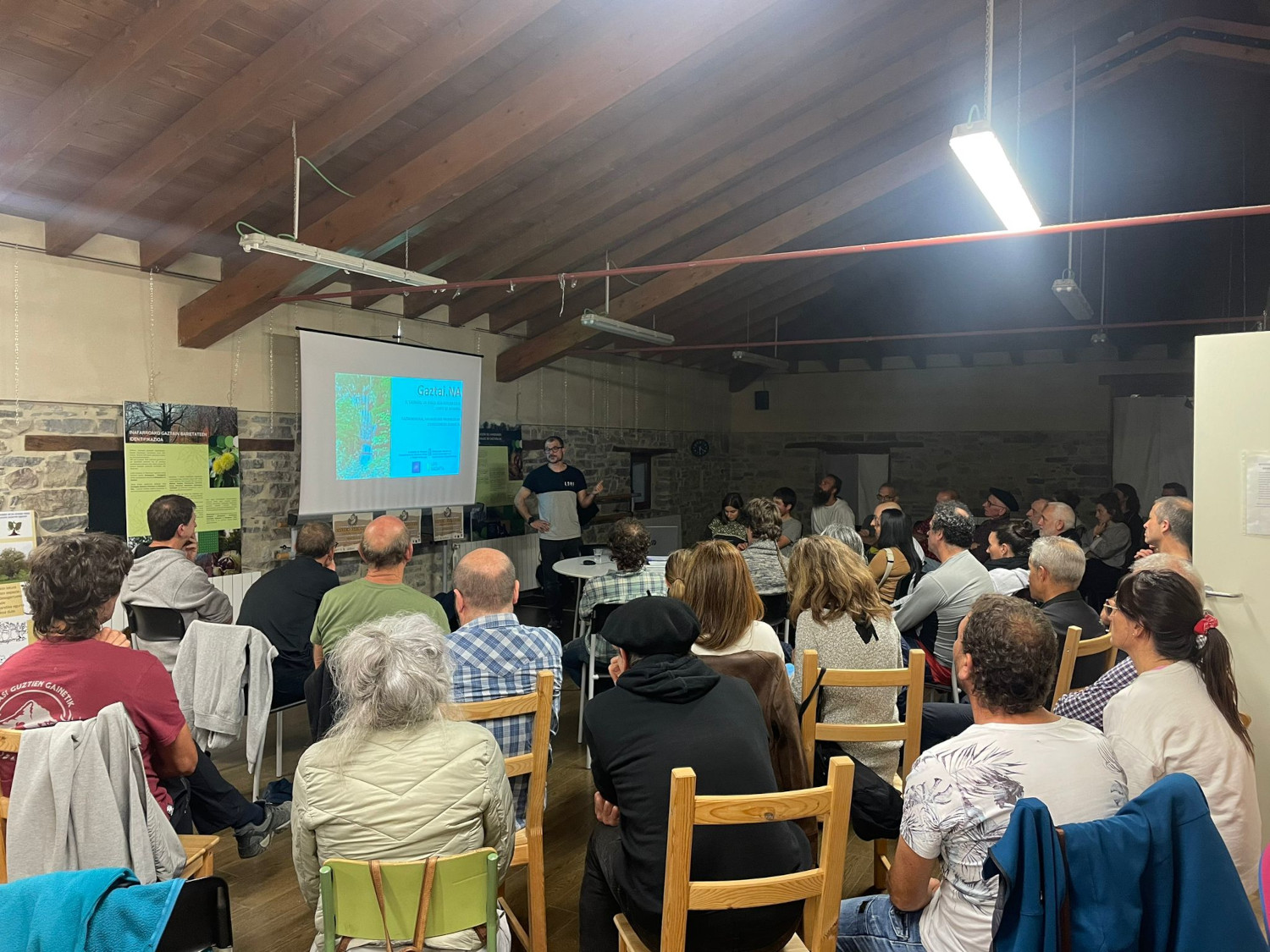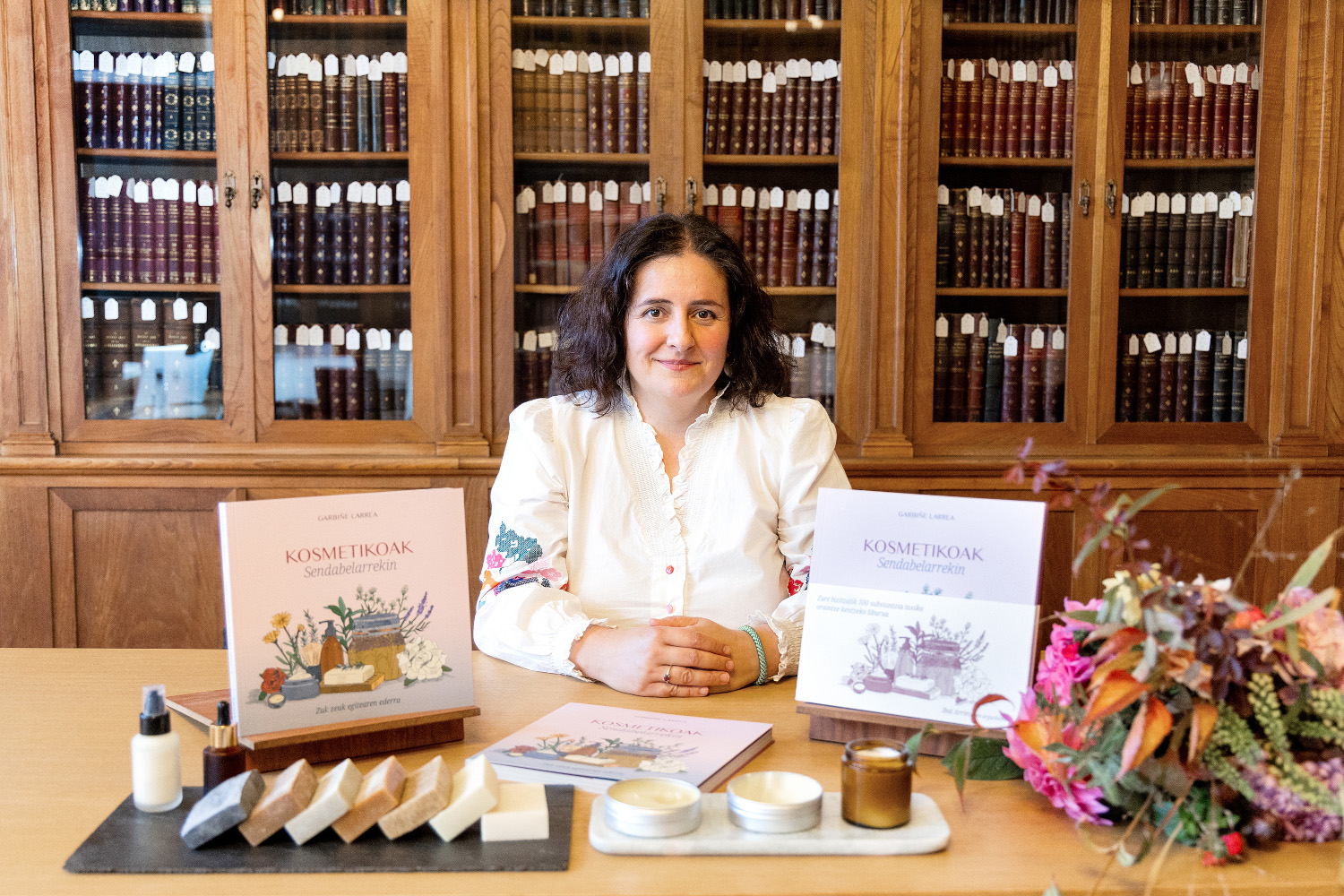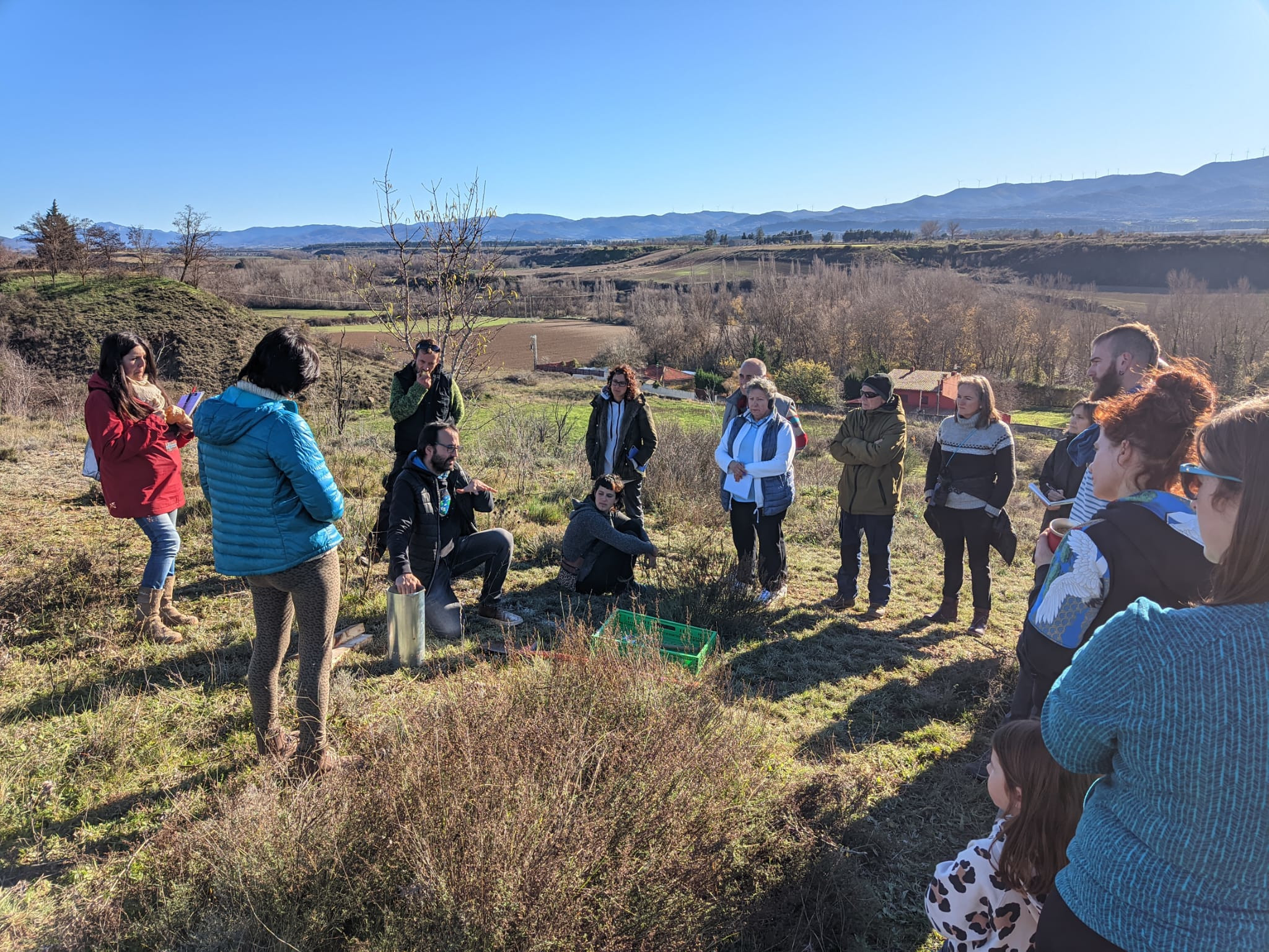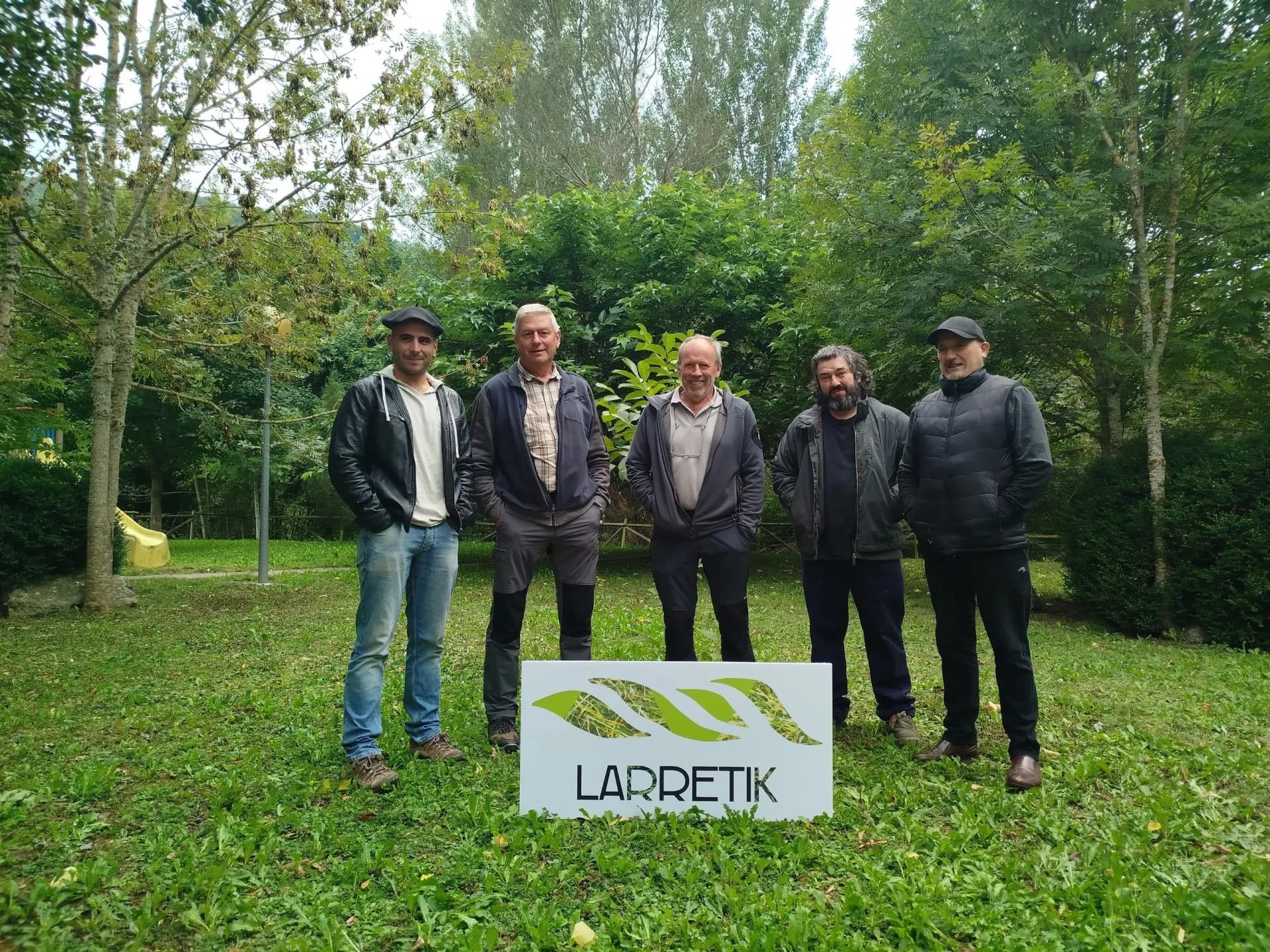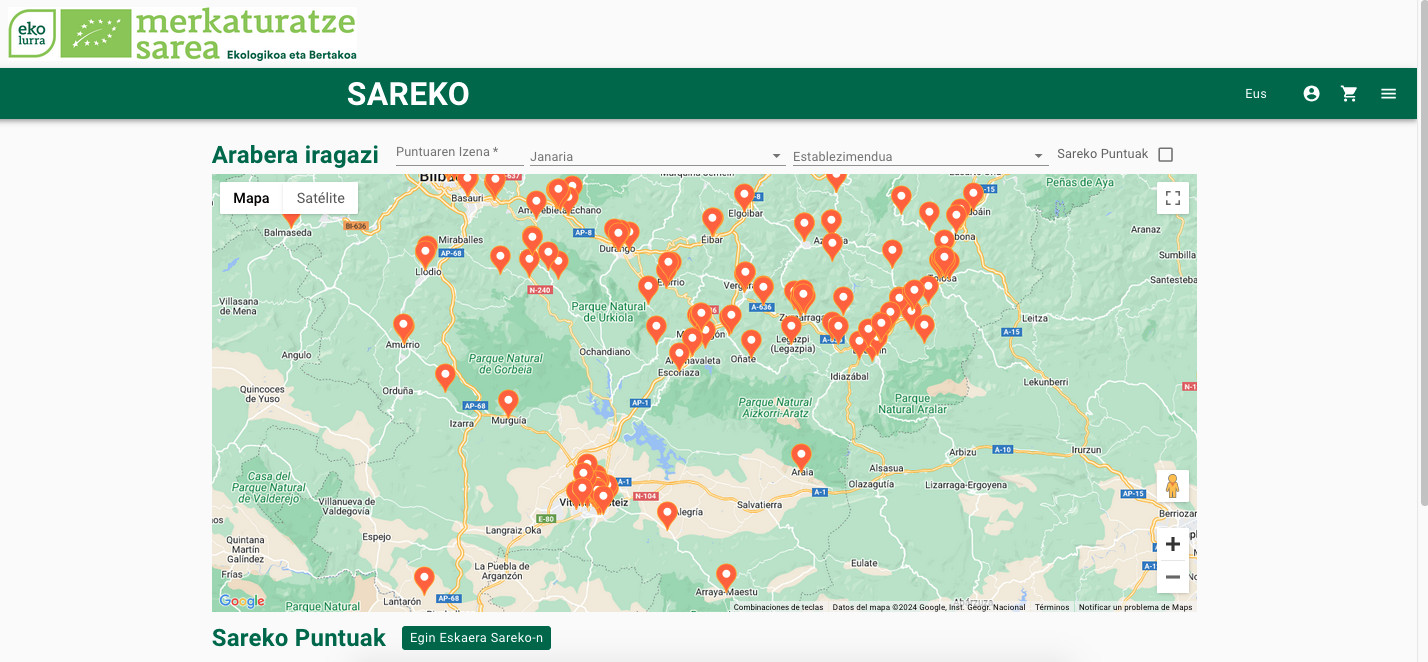"Axule", Baztan blue cheese
- Patricia Tornero Vidal, a native of Valencia, comes from Valencia fifteen years ago to study cattle breeding and has since lived in Erratzu: "It was clear that I wanted a small-scale project," he says. Today, she buys cow's milk from a neighbor of Baigorri and with her, and she pulls out the three cows from her house and makes blue cheese. It distributes its products by direct sale.

The Pittika gas pipeline in Erratzu is a project by the Vallisoletana Patricia Tornero Vidal. Despite its short trajectory of year and a half, the project has its origin in another project that was already underway. “In 2014, I started working with the goats and put the gas station in the house,” he explains. Due to a number of difficulties with the animals and a health problem, in 2019 he had to make the decision to remove the goats and give a new direction to the project. Thus was born Axule, “the blue cow of the Baztan”.
For a sustainable livestock model
Tornero came to the Fraisoro School in Zizurkil fifteen years ago, and there, after two years of livestock studies, decided to stay in the Basque Country. Since then he has moved to the Dorrattipia farmhouse in Erratzu and is engaged in livestock farming. “I’ve always wanted to dedicate myself to this, but I was clear that I wanted a small-scale project, based on respect for animals and the environment and made to my measure.” In Valencia, Torero lived close to industrial livestock, which had nothing to do with what he wanted to set up himself.
At first he had placed about 60 goats and made cheeses with his milk, but last year he had to take them off and it was like returning from scratch. He began to buy cow's milk from a neighbor of Baigorri and run tests. “It’s a small farmer, very close to us, who has cows on Izpegi, and who produces with our same principles.” Tornero makes blue cheese with the milk they buy and they take out of the three cows from the house. “In these places sheep’s cheese is produced everywhere, and that’s great, but we wanted to do something different.” Axule is not the only product of Pittika: it also makes soft pasta cow cheese and a long-term maturing cheese. All of this in an ecological model. “We had doubts when it came to applying for the label, which can be produced sustainably, but we finally decided to put it as a guarantee for consumers.”
Direct sales
Axule cheese is mainly sold in Elizondo, at the producers’ fair in the area, but Valencian also moves in Pamplona. “We participated in the station’s monthly ecological fair and have joined the Ekoalde distribution network.” He says that over the course of a year and a half they are having a very good response, and he is pleased that he has managed to deal with the difficulties that arose in the era of the coronavirus.
The Pittika gas station is making a hole in the area where cow cheese is gradually produced, introducing new products. Blue cheese lovers have no excuses to consume what is produced nearby and sustainably.








